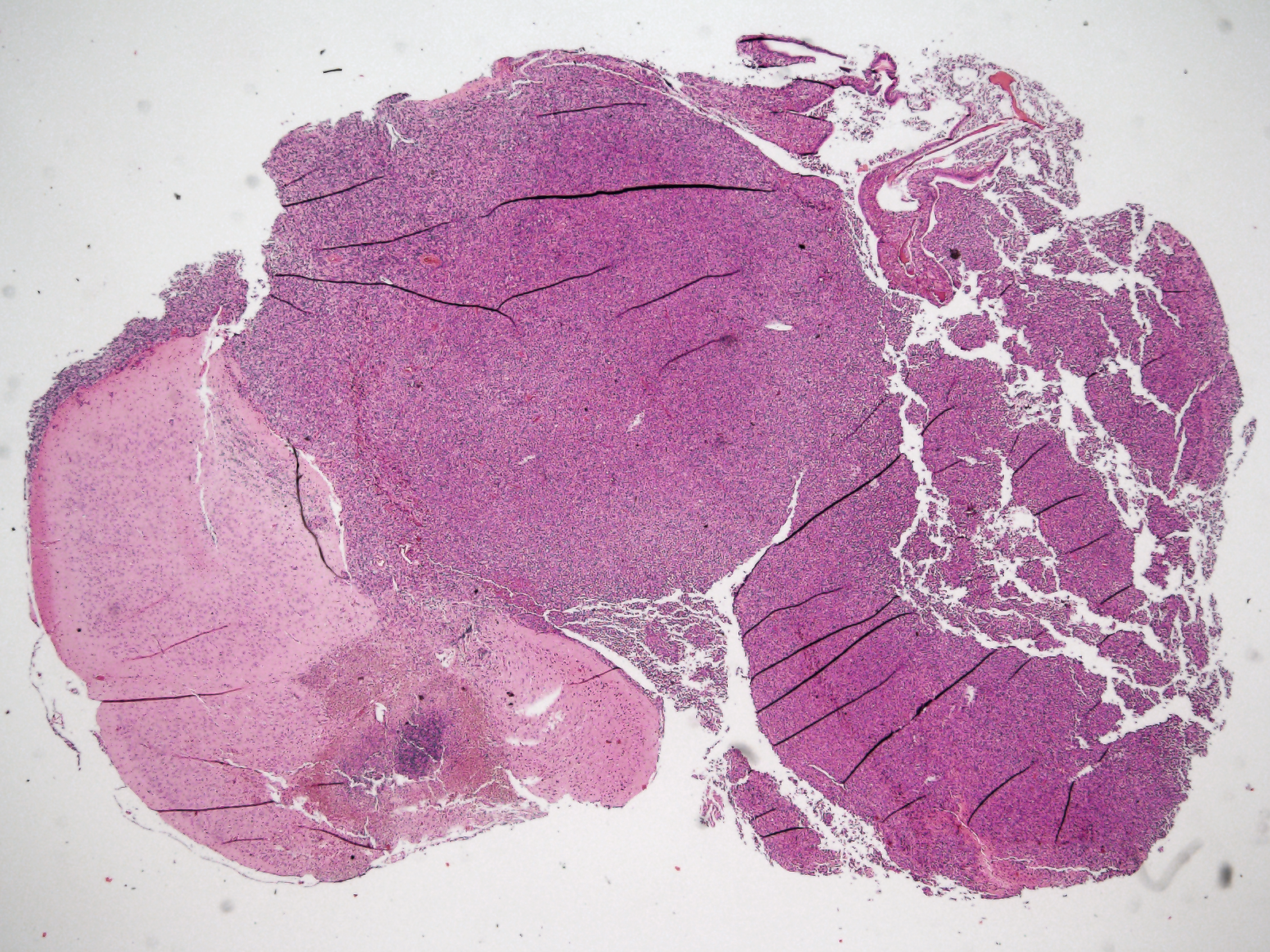Our Research
Primary Brain Tumors
Glioblastomas (GBM), the most common primary brain tumors, are caused by mutations that perturb developmental and homeostatic processes in glial progenitor cells and/or neural stem cells in the central nervous system (CNS). Our goal is to determine how aspects of GBM cell biology and genetics can be effectively targeted to actively eliminate these tumor cells in the brain. To this end, our research addresses a number of outstanding questions in the field. For example, how do mutations in cell signaling pathways promote malignancy? How are other pathways or mutations involved in GBM? Which genes specifically control GBM cell invasion? Which glial cells and/or neural stem cell types in the CNS undergo neoplastic transformation and why? How do cell-cell interactions in the brain contribute to GBM tumorigenesis? Can the molecular pathways driving GBM be effectively targeted for therapeutic benefit?
Read Lab Research Program
Our research program uses a multidisciplinary approach to analyze the function of developmental cell-signaling pathways in tumorigenesis, and our approach uses several brain tumor model systems, including mouse genetic models of GBM, primary patient-derived human GBM stem cells, complex GBM organoid models, and novel tumor models in Drosophila melanogaster. Much of our research focuses on the functional role of mutations in receptor tyrosine kinases (RTKs), such as EGFR and MET, and the downstream signaling pathways and effectors that mediate their oncogenic activity in GBM cells.
Through our efforts, we have identified new RTK effectors that regulate tumor cell mitosis and invasion. We have contributed to the development of new clinical trials for therapies that target effectors of RTK signaling in GBM, including the YAP and TAZ transcription factors. Our work includes new clinical trials of a YAP/TAZ inhibitor in GBM patients. We have also discovered fusion variant in tyrosine kinases which may serve as effective therapeutic targets for pediatric GBM, and are actively working with new models for pediatric tumors. Ongoing exploratory projects in our lab include research on the role of RNA binding proteins downstream of RTK signaling in tumorigenesis, the role of RTK effector pathways in sex differences in tumor development, and the role cell-cell interactions and RTK effector pathways in other glial tumor types.
Working with the Read Lab
Our research program is aided by productive collaborations with other neuro-oncology researchers in the Departments of Neurosurgery, Pediatrics, Pathology, Human Genetics, and Hematology and Medical Oncology, including clinical neurosurgical faculty. We welcome young scientists who seek to enter this dynamic field. Trainees in our lab will have opportunities to work with all of our brain tumor model systems, perform drug testing experiments in pre-clinical paradigms, interface with clinical neuro-oncology faculty, and advocate for patient outreach and education.


